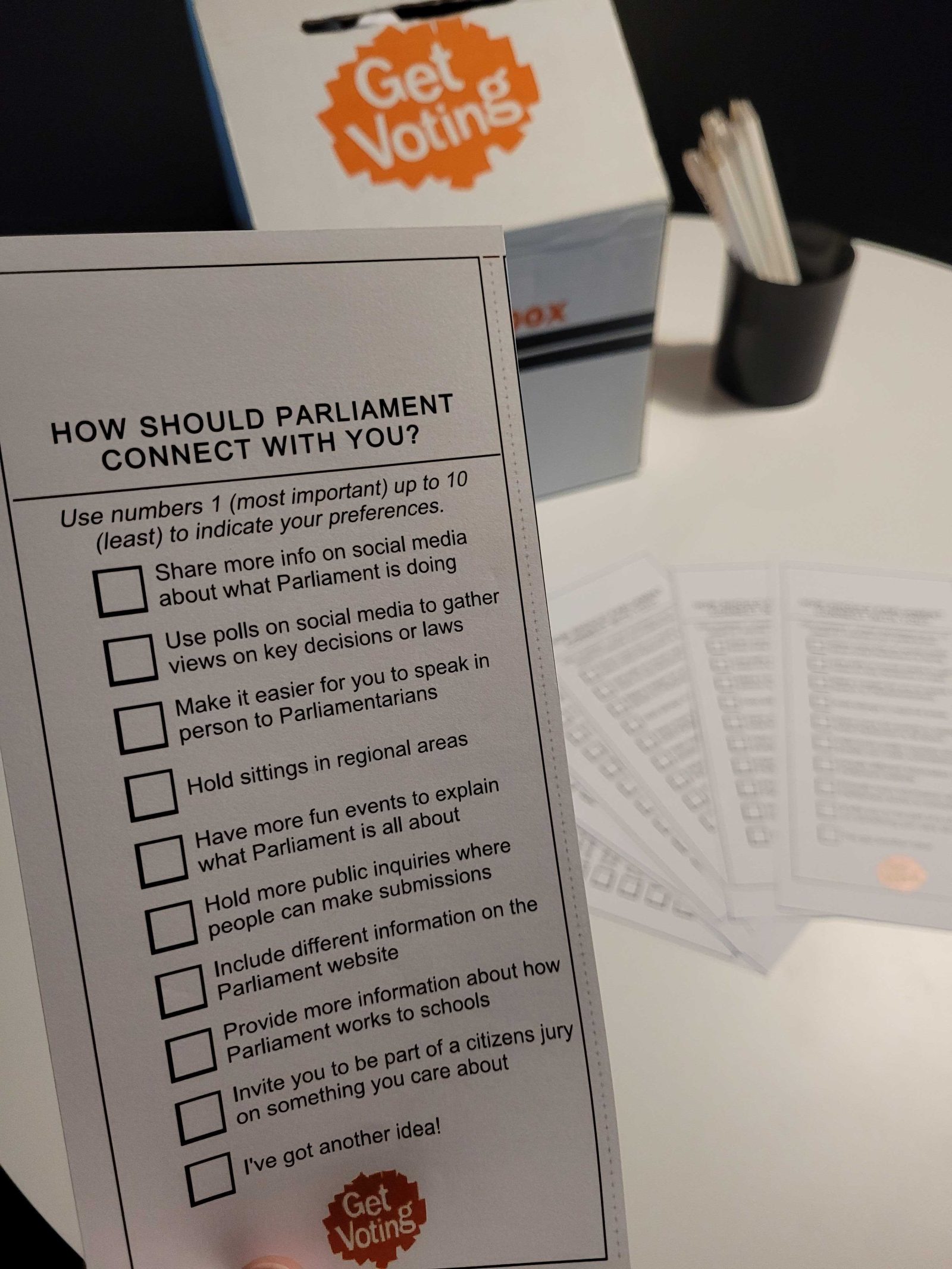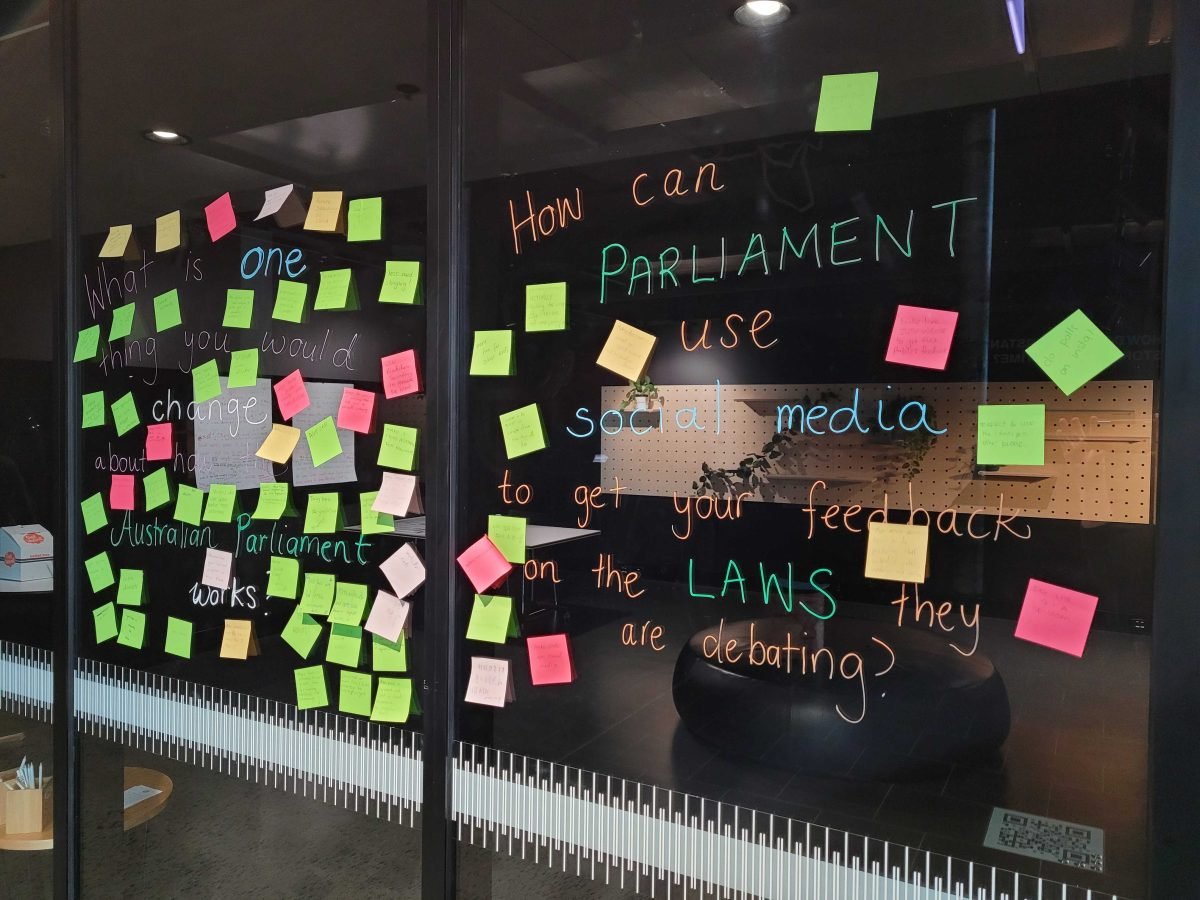Posted 23 Nov

During October and November 2022 I was part of the MOD Open Lab Residency program which gave me an opportunity to share my research on the way the community engages with their parliaments.
Trust in democracy is pretty fragile in Australia, and many people feel disconnected from things like politics and parliaments. But there are ways we can help strengthen this connection. For example, some people might like the idea of visiting parliament in person to have their say directly to politicians. Others might want the chance to follow along with debates through an app on their mobile phone. Others might not care much until something impacts their local neighbourhood, like building a new road or closing a school, and then want the parliament to come to them to listen to how they feel.
My research – called the Connected Parliaments Project – aims to find out how people in the community interact with the Federal and State Parliaments that represent them. The big picture goal is to make it easier for everyone to understand what their democratic institutions are doing and why, how they can share their ideas or concerns, and how we can work together to face the challenges and opportunities of the future.

I had originally hoped I could use the MOD Open Lab Residency opportunity to conduct qualitative research through a series of surveys with MOD visitors, however the time of frames did not align. So – I went to ‘Plan B’ – the ‘ballot box’ option – which turned out to be a really fun interactive way for me to connect with visitors to the MOD about my research and listen to their ideas and think about how I can feed in this feedback to my research design.
The ‘ballot box’ option involved setting up a small voting ballot box and a pile of voting slips. Instead of candidates for election, the voting slips listed different ways people may seek to engage with their parliaments. For example, voters were able to indicate whether they had done things like visit their parliament or make a submission to a parliamentary inquiry or signed a petition. Visitors to MOD ‘cast their vote’ and indicated their experiences with their parliament in the process.
Additionally, I used the window markers to write some provocations on the windows of the Open Lab Residency. I asked: ‘Should Parliaments use digital tools like social media to engage with the community?’ and ‘If you could change one thing about Parliaments in Australia what would it be?’ I invited visitors to use post-it notes to share their thoughts with me. I received a wide variety of responses to these questions. Many responses emphasised the need to promote and celebrate diversity within and outside of the parliament, and to proactively reach out to communities and individuals that don’t usually get their voices heard. There appeared to be support for greater use of digital technologies too – and many calls to reform the cultural within parliament itself and to improve political accountability for decision making.
The Open Lab Residency program was a very valuable way to enrich my research design. I absolutely loved interacting with MOD staff and MOD visitors refreshed and inspired me to continue to pursue qualitative research in the future around these themes. I look forward to doing this as part of my 2022 Churchill fellowship which has a focus on how young people engage with their parliaments.
If you’d like to learn more about my work please contact me on sarah.moulds@unisa.edu.au or 0401132544.
Dr Sarah Moulds is a senior lecturer in law UniSA: Justice + Society and co-founder of the Rights Resource Network SA. She is passionate about parliaments and connecting citizens and communities with law makers, and her most recent book Committees of Influence explores the important role parliamentary committees play in rights protection in Australia.